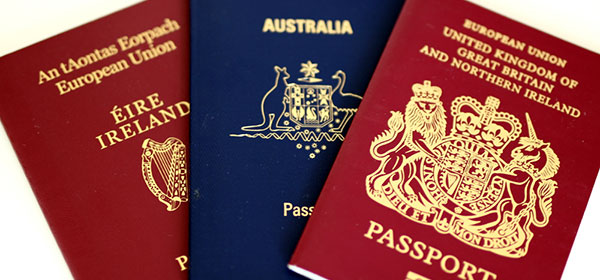As the dual-citizenship brouhaha heads to the High Court today, the eventual ruling could be a bonanza for any resident with two nationalities, potentially entitling them to multiple pensions.
Australian law allows eligible citizens with dual nationality to receive Age Pension benefits here and also from the other country of which they are a citizen, La Trobe University Associate Professor Gwenda Tavan told YourLifeChoices.
“Australia has social security agreements with multiple countries that allow these cross-border claims and generally, they benefit our Government,” Prof Tavan said.
“If a dual citizen is able to claim a part pension overseas, then the amount of Australian Age Pension they receive is reduced, saving money for our Department of Social Services.”
She agreed that in many cases, pensioners who claimed two payments might be better off because in combination they could potentially receive more than if they only drew down on the Age Pension.
There are currently social security agreements with 30 countries and the Federal Government is negotiating to have several others established.
Countries where agreements are in place include: New Zealand, Ireland, the United States, Canada, Cyprus, India and Malta.
The agreement with the United Kingdom was terminated in 2001 by Australia because the UK Government refused to index pensions here.
However, eligible citizens can continue to receive UK social services payments because they are made under that nation’s domestic law and are not affected by the agreement’s cancellation.
For more details on UK pension eligibility visit the UK Department of Social Security website at www.dss.gov.uk.
Where social security agreements exist, they are based on the notion that responsibility for funding retirees should be shared between countries that offer dual citizenship.
According to the Department of Social Services: “In this way, responsibility for social security is shared between the countries where a person has lived during their working years and the person is able to unlock potential entitlements.”
While the ‘shared responsibility’ notion underpins the agreements, not all of them apply dual citizenship rights identically and some of them have more exclusions than others.
The Irish are one of the most inclusive nations offering citizenship to foreign-born grandchildren of Irish nationals. Further, if your parent gained Irish citizenship through marriage, adoption or naturalisation, and was a citizen of Ireland when you were born, you might also have Irish nationality.
Canadians also appear to extend benefits to most descendents, stating that to be eligible for pensions and benefits, you just need to be a survivor of someone who has lived or worked in Canada.
The rules for dual UK citizenship are more prescriptive and confusing. UK nationality is only bestowed on foreigners if they were born before 2006 and their British parents were married when they were born.
Some foreign embassies offer online tests to assess dual nationality. The tests are simple but may not be conclusive. If in doubt, contact the Australian office of the foreign embassy in question.
Click on the links below to find out if you are a dual citizen.
Have you established whether you are entitled to dual citizenship? Are you claiming a payment from another country and receiving the Australian Age Pension?
Opinion: are you outside the law?
The first hearing into whether Barnaby Joyce and Matt Canavan are eligible to sit as Federal MPs will be conducted in Brisbane by the High Court today.
ABC News reported that because neither MP is contesting the fact that they are dual citizens, at this stage “the only issue that will be debated is whether that rules the pair ineligible to sit in Parliament under an interpretation of section 44(1) of Australia’s Constitution”.
Depending on whether the MPs agree or not with the judgement, the debate in and outside the court could drag on for months.
This will not only prolong Parliament’s instability, but also confuse potential dual citizens among Australia’s retirees.
The final decision will likely shed some light on whether the onus to ascertain citizenship status under unusual circumstances is on the individual or not.
But the debate has thrown up another dilemma, and that is that many Australian pensioners will also be wondering if they, too, have dual nationalities. And if they have but haven’t investigated it, does that mean they must pay back any Australian Age Pension they may not have been entitled to?
For the fact of the matter is, under Department of Social Services rules, if you are entitled to a pension from another country, then you must claim that before you can apply for an Australian Age Pension!
It’s possible that if you are a dual citizen that your Age Pension will be compromised.
Given that a growing list of politicians are belatedly finding out that they have dual citizenship, it’s possible that many other Aussies may also have foreign citizen status. And if so, they could be receiving an Australian Age Pension part of which they are not entitled to.
Many retirees born in Australia have never questioned their nationality. Will they now be asked to, depending on the High Court’s interpretation?
As La Trobe academic Prof Gwenda Tavan told YourLifeChoices, the sooner the court clarifies the Constitution’s citizenship stance the better.
Related articles:
Centrelink help claiming overseas pension
Pension payments overseas
Can UK payment affect my pension

